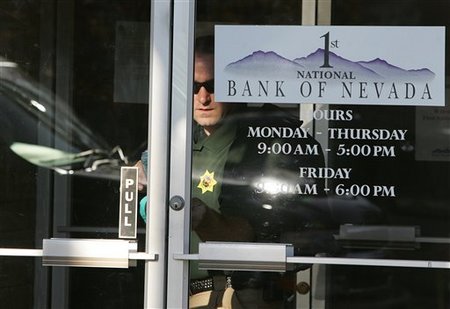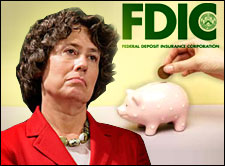Darrel Dochow May Not Be the Only Official Who Helped Banks Hide Financial Problems

Former bank regulator Darrel Dochow evades ABC News’ questions about the Treasury Department Inspector General’s investigation into allegations he allowed IndyMac to cook its books when he worked at the Office of Thrift Supervision. (ABC News)
A brewing fraud scandal at the Treasury Department may be worse than officials originally thought.
Investigators probing how Treasury regulators allowed a bank to falsify financial records hiding its ill health have found at least three other instances of similar apparent fraud, sources tell ABC News.
In at least one instance, investigators say, banking regulators actually approached the bank with the suggestion of falsifying deposit dates to satisfy banking rules — even if it disguised the bank’s health to the public.
Treasury Department Inspector General Eric Thorson announced in November his office would probe how a Savings and Loan overseer allowed the IndyMac bank to essentially cook its books, making it appear in government filings that the bank had more deposits than it really did. But Thorson’s aides now say IndyMac wasn’t the only institution to get such cozy assistance from the official who should have been the cop on the beat.
The federal government took over IndyMac in July, after the bank’s stock price plummeted to just pennies a share when it was revealed the bank had financial troubles due to defaulted mortgages and subprime loans, costing taxpayers over $9 billion.
Read moreFraud scandal: Treasury regulators allowed IndyMac to cook its books


